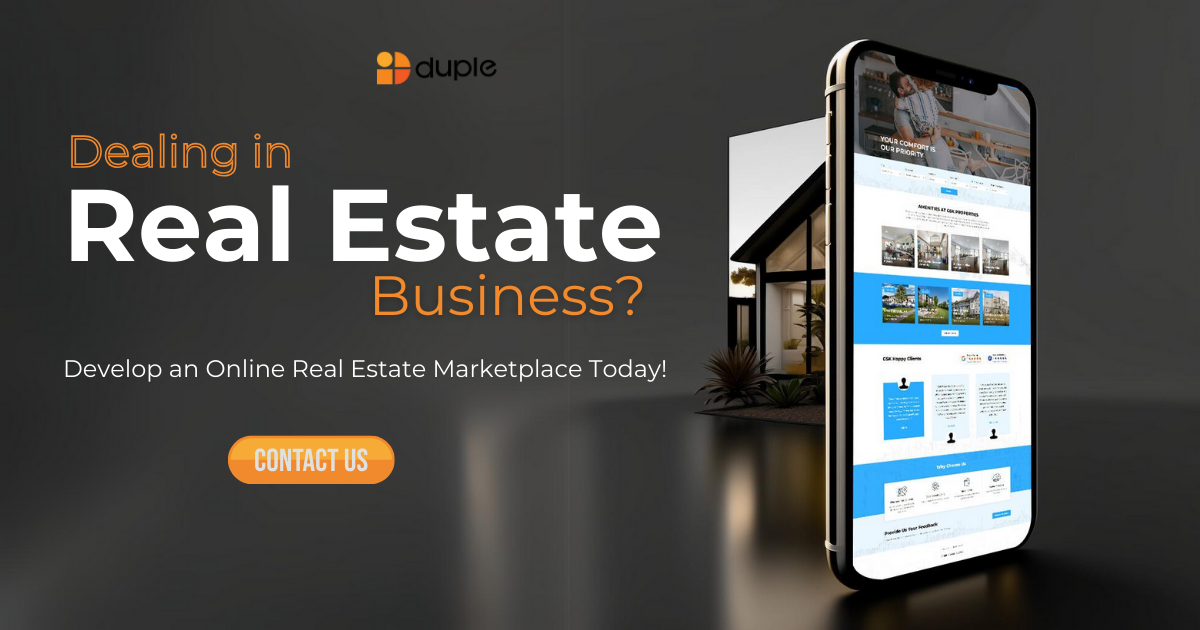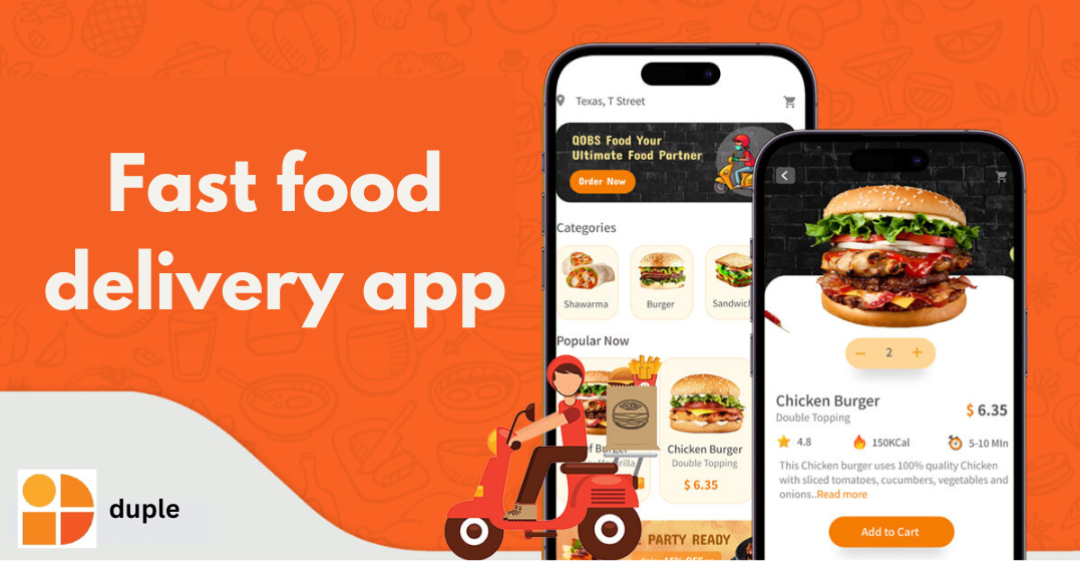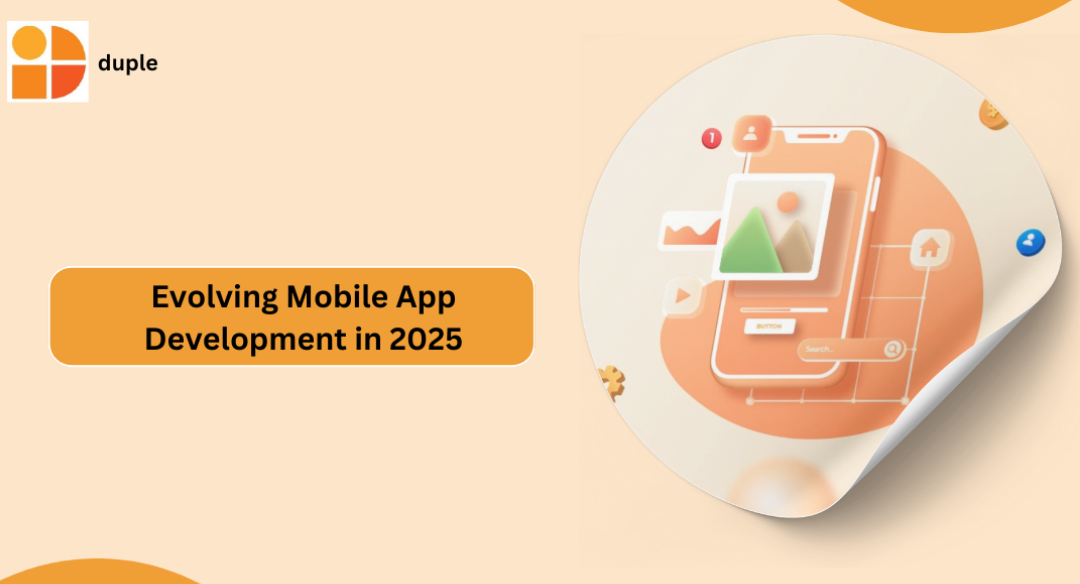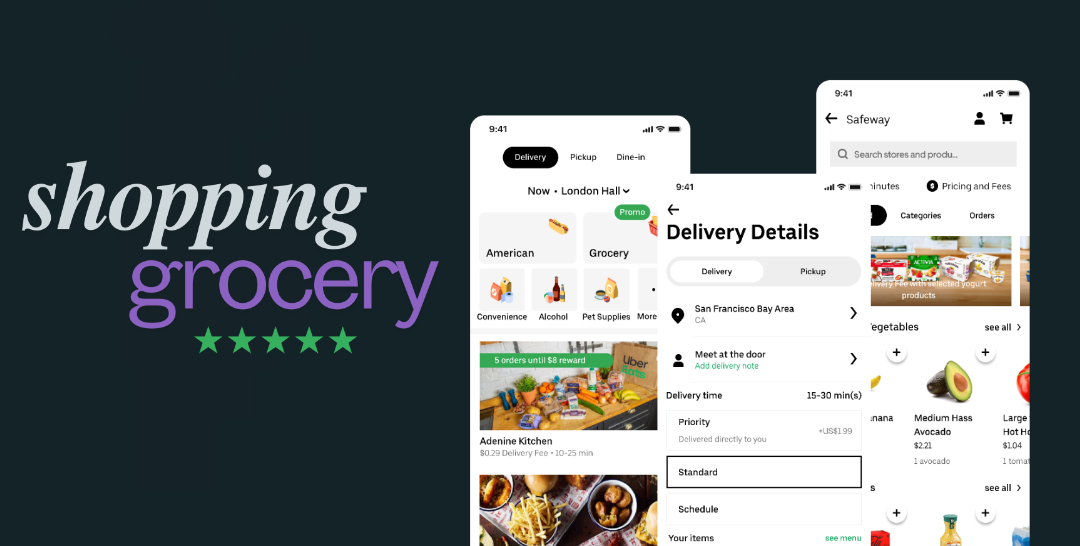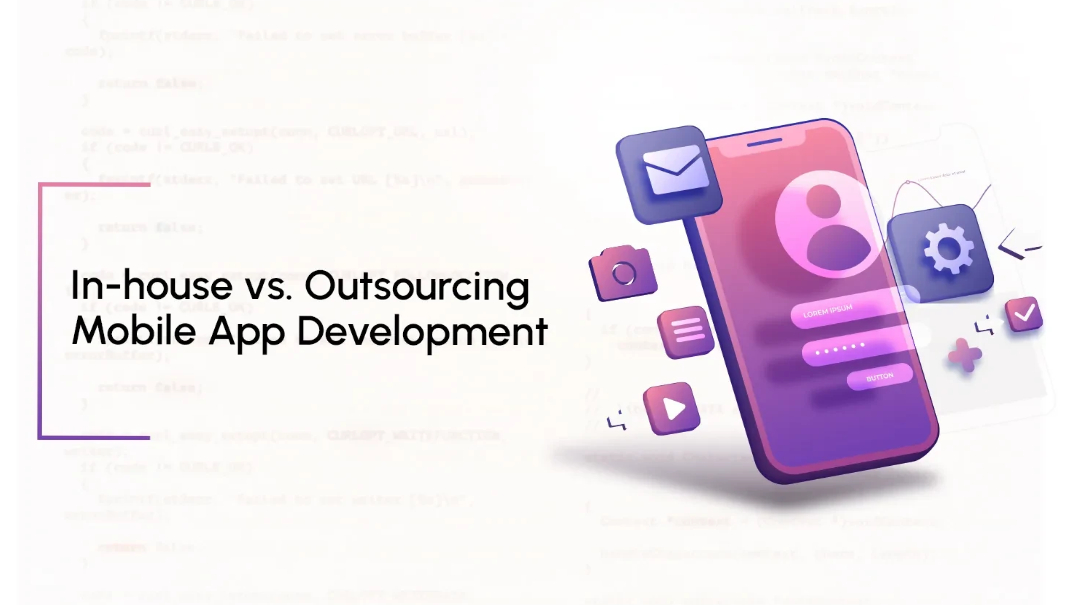Did you know that one in four people use a real estate app development to search, buy, and sell real estate online? The real estate industry has long been profitable, and now, with the development of smartphones, it has become even more visible. More people are searching for properties online than ever before, making the real estate market more competitive.
Market reports indicate that an amazing 95% of real estate agencies have websites featuring property listings. However, creating a website is just one small step in such a large competition. To stay ahead, you must also develop a custom mobile app for your real estate business.
Your real estate mobile app needs to differentiate itself from the crowded app stores, ensuring that people download and use it.
Before we delve into what sets an “outstanding” real estate app development service apart and its standout features, let’s understand why it’s crucial to develop a mobile app for your real estate business.
Reasons to Consider a Real Estate App Development for Your Real Estate Business
The real estate market has become highly digitalized with the help of real estate automation. Instead of visiting multiple agents, homebuyers can now conveniently browse numerous homes and properties directly on their smartphones.
As per the National Association of Realtors report:
- In 2018, over 44% of people began their property search online, and this percentage is expected to rise in 2024.
- In 2018, about 81% of older millennials, 80% of younger millennials, and 78% of Generation X homebuyers discovered their properties through mobile devices (Source).
- Virtual house tours are deemed the most essential feature of a real estate app by over 90% of baby boomers (aged 53-71).
The Must-Have Real Estate App Features
Let’s explore some of the key features and functionalities that real estate mobile apps should have in 2024. While it’s impossible to cover all desired features in a single blog, let’s focus on some of the most sought-after ones that should be included without hesitation.
1 User sign-up and login process:
The user onboarding process is the cornerstone of real estate app development and should be kept as simple as possible. There are three options for accomplishing this:
- Social Media
- Email-based Authorization
- Phone Verification
You can enhance the user experience by combining and offering all the mentioned signup options in your app. This versatility and ease of use will streamline the registration process for users.
2 User profiles for users, sellers, and agents:
Users should be able to create their profiles within the app to engage in various activities. Different user groups will have distinct profiles. For example, buyers can access homes for sale, save favorites, view listings, send inquiries, and more. Agents can access their listings, schedules, potential buyers, listing views, advertising options, and more. All user profiles may share common features such as messaging and mapping functions.
3 Listings and Database of Properties:
Another essential aspect of a real estate app development is property listings. Your app should display a list of available homes with all the necessary information. Users should easily add their listings if they want to rent, sell, or exchange property. The listings and database feature should be scalable to accommodate future growth in users and listings. Ensure that the database or servers can handle increased activity and expansion if needed.
4 Filters and Categories:
This function allows users of your real estate app automation to search for specific queries by adding new categories and various filters. Let’s explore the distinctions between categories and filters on a mobile app for real estate.
Filters:
Every app should include filters to help users narrow their searches and find relevant results that match their needs. Your real estate app should ideally include the following filters:
- Location: The area that the property is located in was chosen.
- Budget: This represents the upper and lower limits of the amount you can spend on the property.
- Size: The square footage or the details of numerous rooms that make up the space.
- Property Type: Residential or non-residential property type.
- Amenities: Includes or excludes amenities. facilities like a playground, a pool, a gym, and many others.
Categories:
Now that users have viewed and understood the filtered results, let’s examine the categories available in a real estate mobile app. These categories assist users in focusing their property search to find the ideal and best property.
Residential:
- Housing Societies: Buildings with 10-12 floors.
- Housing Complexes: Buildings with 20 floors or more.
- Individual Houses: Single or double-story houses.
- Standalone Buildings: Apartments with 6 floors or less.
- Standalone Flats: Flats not in a society or complex.
- Villas: Luxury houses with 1-2 stories, exterior patios, gardens, and pools.
- Row Houses: Duplex or terrace houses
Non-Residential or commercial:
- Commercial buildings- Office buildings.
- Commercial office spaces- residential + offices
- Rent
- Buy
- Sell
- Mixed-use- Renting and Selling and more!
5 Property Profiles:
These profiles provide detailed information about the property, including descriptions, images, videos, rich media, price details, value propositions, neighborhood information, owner details, and more. Over 80% of customers make their home-buying decisions based on uploaded photographs and videos. Contact information for the realtor or property owner is also included in the property profiles.
6 Shortlisting Favorites:
Users should have the ability to shortlist and save their favorite properties using your app. This will greatly simplify their decision-making process by providing immediate access to all relevant information on their profiles and preferred properties.
7 Maps Feature:
Including a map feature in a real estate app can provide consumers with a wealth of valuable information. You can display property locations for easier on-site navigation and include data and statistics related to selected properties. This can involve geographic data from government websites, such as crime rates, infrastructure, nearby schools, median income, likelihood of natural disasters, and more.
8 Push Notifications:
Using push notifications for marketing purposes is highly effective. For your real estate app to succeed in the long term, a push notification feature is essential. Push notifications help you stay connected with and memorable to your customers. They also enable effective promotion of your services. You can use them to reach out to potential customers, share industry news, notify users of price changes, or alert them when a new property is listed in their preferred area. To maximize the benefits of push notifications, messages must be tailored to ensure relevance for end users.
9 Property Project Cost Calculators:
Including a price estimator or property project cost calculator in your real estate mobile app allows users to get a rough estimate of the total project cost of a property. By enabling users to specify various variables such as starting payment range, taxes, loan interest payments, and repayment plans, they can obtain a more accurate and detailed estimate with a breakdown of the project cost.
10 Calendar:
While the calendar may appear small, it’s a valuable feature for both buyers and brokers. Buyers can view available dates and schedule appointments with agents or sellers directly from the app. The calendar also sends reminders to both parties at the scheduled meeting time.
11. Call or Direct Messaging:
An essential part of converting leads is offering users a complete property guide with relevant information. By integrating the call or direct messaging feature into the real estate app, you can guide users through the sales process. There are various ways to connect buyers and agents:
- Make a direct call
- Request a callback
- Engage in online chat
- Schedule a consultation
12 Analytics:
Analytics is a vital part of any mobile app. Whether it’s for your company’s exclusive app or a real estate market app where users buy, sell, or rent properties, understanding how users interact with your app is crucial. Analytics helps you assess your app’s performance and identify areas for optimization. You can gather valuable insights about users and their in-app behavior, such as screen time. This data allows you to segment users based on their behavior and leverage it in marketing campaigns to boost sales over time.
13 Virtual Tour:
It’s remarkable how much a virtual tour or 3D walkthrough can captivate and attract potential buyers, giving them a feel for the house they’re interested in buying. According to the study, 70% of first-time homebuyers believe that a 3D virtual tour of homes for sale is just as important as an open house. With the increasing popularity of next-gen technology, it’s advisable to adopt these features before they become industry standards, giving you a competitive advantage.
14 Tenants:
When tenants use the app to search for rental properties, they can indicate their requirements and the desired availability period. They can also provide additional details such as the duration of their stay and their budget, which helps narrow down their search to meet their specific needs. Tenants can specify if they are seeking a residential or commercial space.
15 Chatbots and AI Assistance:
The chatbots and AI assistance feature in a real estate app uses artificial intelligence and chatbot technology to offer personalized and automated support to app users. This feature can be added to help users search for properties, schedule appointments, find property information, and even assist with mortgage calculations. Integrating chatbots and AI assistance into a real estate app benefits both real estate agents and users.
For agents, integrating chatbots and AI assistance into a real estate app can streamline their workflow by automatically addressing common questions and scheduling appointments or property tours. This saves time and lets them focus on important tasks like closing deals and networking. For users, the chatbot and AI assistance feature offers 24/7 support and guidance. It helps them find properties that match their criteria, answers questions about properties, and provides advice on buying or selling real estate, improving their overall user experience.
If you want to create a real estate mobile app similar to Houzz, consider contacting a trusted real estate app development company like Duple IT Solutions. In today’s fiercely competitive real estate market, simply having a website isn’t enough. To outshine your competitors, you’ll need a tailor-made mobile app with a variety of features and functionalities.

